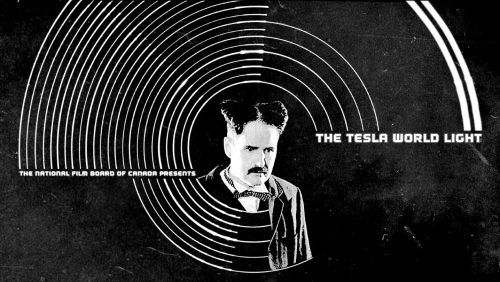
New York, 1905. Visionary inventor Nikola Tesla makes one last appeal to J.P. Morgan, his onetime benefactor. THE TESLA WORLD LIGHT is a tragic fantasy about the father of alternating current, inspired by real events such as the inventor’s run of bad luck as a businessman and his affection for a pet bird, which he loves “like a man loves a woman.” Tesla’s words to the banker form the backdrop of this moving film about the man who blended science and art in his attempts to create the utopia of unlimited energy for all.
Filmmaker Matthew Rankin (Mynarski Death Plummet) works as much in the tradition of experimental cinema as in animated documentary. He uses an aesthetic reminiscent of the early 20th-century European avant-garde, to electrifying effect. A luminous and deeply original world unfolds around Tesla, bursting with bright ideas. The film resonates with feverish energy, culminating in a spectacular finale that is both a vision of horror and a creative epiphany—an explosive homage to Tesla’s incandescent genius and his towering position as a symbol of modernity.
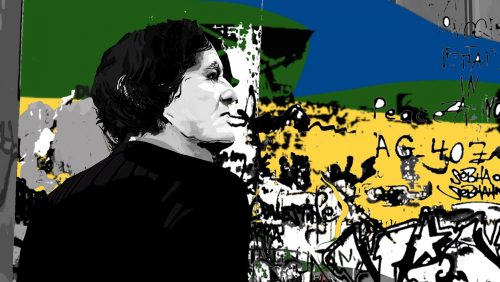
WALL is a feature-length animated film that explores both sides of the barrier separating Israel and Palestine. Written by two-time Oscar® nominee, screenwriter and playwright David Hare, this visually striking 80-minute film takes an unflinching look at the Middle East. WALL describes the profound and far-reaching effects this massive barrier has had on two cultures: while no doubt helping to secure Israel, the construction of the wall has also had life-altering consequences for the Palestinians on the other side.
A National Film Board of Canada production, WALL was directed by award-winning animator Cam Christiansen, scripted by Hare, who also stars in it, and produced by David Christensen and Bonnie Thompson.
Using advanced animation tools, 3D motion-capture footage and a distinctive handcrafted approach, WALL examines the “fence” that has united, divided and changed communities, dramatizing the deep longing for peace on all sides.
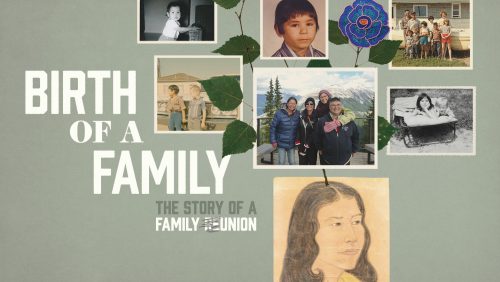
Three sisters and a brother, adopted as infants into separate families across North America, meet together for the first time in this deeply moving documentary by director Tasha Hubbard.
Removed from their young Dene mother’s care as part of Canada’s infamous Sixties Scoop, Betty Ann, Esther, Rosalie and Ben were four of the 20,000 Indigenous children taken from their families between 1955 and 1985, to be either adopted into white families or to live in foster care. Now all in middle age, each has grown up in different circumstances, with different family cultures, different values and no shared memories. Birth of a Family follows them through the challenges, trepidations and joys of their first steps towards forming their family.
Meeting all together for the first time, they spend a week in Banff, Alberta, sharing what they know about their mother and stories about their lives and the struggles they went through as foster kids and adoptees. As the four siblings piece together their shared history, their connection deepens, bringing laughter with it, and their family begins to take shape.

A Better Man grew out of my personal and professional experiences with domestic violence. I hope that sharing my personal search for justice and healing will contribute to the struggle to end domestic violence.
I desperately want domestic violence to stop. Art, storytelling, and deep, painful conversations are an integral part of the solution. By getting closer to the truth of what survivors experience, and of why men choose to use violence, we can help stop the violence.
A Better Man documents a personal experiment for me and my abusive ex-partner, Steve—a step towards healing, understanding, and accountability. My hope is that our story will motivate others to find new, creative solutions to a problem that continues to be a global epidemic.
This film was truly a community effort. Its seed funding came from more than 1,000 contributors from 30 countries. Artists, advocates, labour unions, leaders in the women’s community, friends, and family all stepped up, lending emotional, financial, creative, and political support to this extremely challenging project. Our production team combined expertise in documentary film with experience with the complex subject of domestic violence. The compassion of this community provided the support that Steve and I needed throughout the process.
During the nearly five years of making this film, I have had the privilege of meeting dozens of people working on innovative solutions to the problem of domestic violence. In nearly every community, there are advocates, activists, counsellors, and others working on new approaches to justice, new ways of healing, and new paths to non-violence for the people who use violence. Their work is deeply inspiring and deserves our close attention.
In telling my story, I stand on the shoulders of so many survivors who bravely told theirs. A Better Man is also held up and inspired by a powerful and growing movement to end domestic violence that has been working on behalf of survivors for decades. If this film can help contribute to this movement, if it can inspire more courageous conversations in relationships, schools, and workplaces, then we will have begun to achieve our goal.
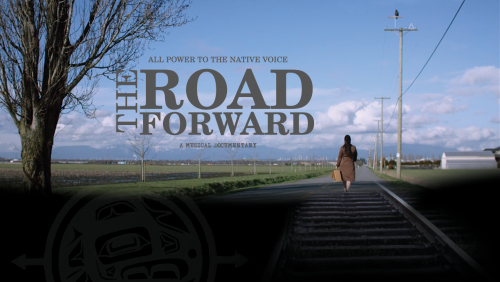
The Road Forward, a musical documentary by Marie Clements, connects a pivotal moment in Canada’s civil rights history—the beginnings of Indian Nationalism in the 1930s—with the powerful momentum of First Nations activism today.
Clements paints an electrifying picture of how a tiny movement, the Native Brotherhood and Native Sisterhood, became a powerful voice for social, political and legal advocacy, eventually effecting profound change at the national level. The Road Forward’s stunningly shot musical sequences, performed by an ensemble of some of Canada’s finest vocalists and musicians, seamlessly connect past and present with soaring vocals, blues, rock, and traditional beats.
The Road Forward is a rousing tribute to the fighters for First Nations rights, a soul-resounding historical experience, and a visceral call to action.
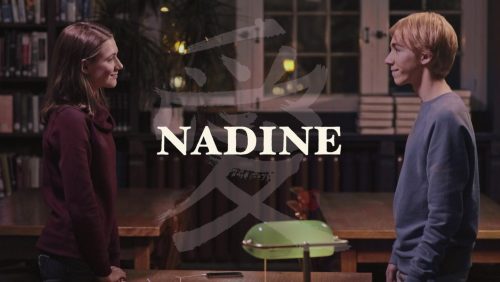
From out of nowhere, the most beautiful girl in the world sits at the table across from me at the library. Is this a stroke of good luck or bad? Her smile paralyzes me. I can’t talk to her because I don’t know her, but I can’t get to know her because I won’t talk to her…
NADINE, the first collaboration between filmmaker Patrick Péris and the National Film Board of Canada, is an ambitious work that blends live action footage with various animation techniques.

Produced by the National Film Board, Naked Island brings together some of Canada’s most talented animators in a series of 14 super-short and incisive films that expose the dark underbelly of modern-day society. Blending the art of animation with the format of advertising, these filmmakers use wit and satire to address topics from global warming to politics to our obsession with technology.
Ranging from Oscar® winners and nominees to emerging talent in animation and fine arts, these filmmakers make bold statements in a variety of styles to create ultimate anti-advertisements that encourage us to stop and think.
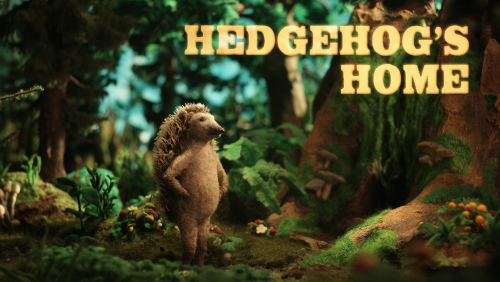
In a lush and lively forest lives a hedgehog. He is at once admired, respected and envied by the other animals. However, Hedgehog’s unwavering devotion to his home annoys and mystifies a quartet of insatiable beasts: a cunning fox, an angry wolf, a gluttonous bear and a muddy boar. Together, the haughty brutes march off towards Hedgehog’s home to see just what is so precious about this “castle, shiny and huge.” What they find amazes them and sparks a tense and prickly standoff.
This sumptuous and delicately choreographed stop-motion fable—made entirely of needled felt—revives the timeless and timely notion of cultivating our own place of safety, dignity and comfort, no matter how big or small. Like a welcome blanket on a chilly day, Hedgehog’s Home is a warm and universal tale for young and old that reminds us there truly is no place like home.
A co-production between the National Film Board of Canada and Bonobostudio, Hedgehog’s Home is exquisitely directed by Eva Cvijanović and based on the classic story by Branko Ćopić, a writer from the former Yugoslavia.
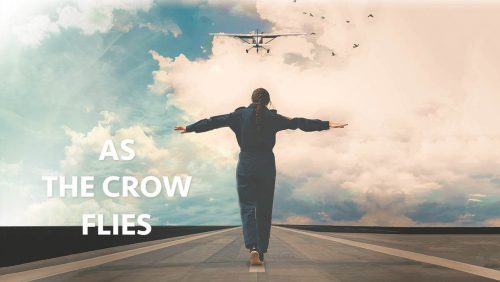
Eighteen teenagers. Seven life-changing weeks.
Every summer, the Royal Canadian Air Cadets offers its top cadets the chance to participate in an elite flight-training camp. As the Crow Flies follows a group of these young men and women as they undergo seven weeks of training to get their pilot’s license in an intense program that normally takes six to eight months.
Casting an especially affectionate and empathetic eye on her female subjects, filmmaker Tess Girard—herself a graduate of the program—creates a unique and intimate portrait of an extraordinary, yet also very recognizable, group of 17-year-olds as they come of age. As one cadet says, the program is “not only learning about flying, but also about how intricate everything is.”